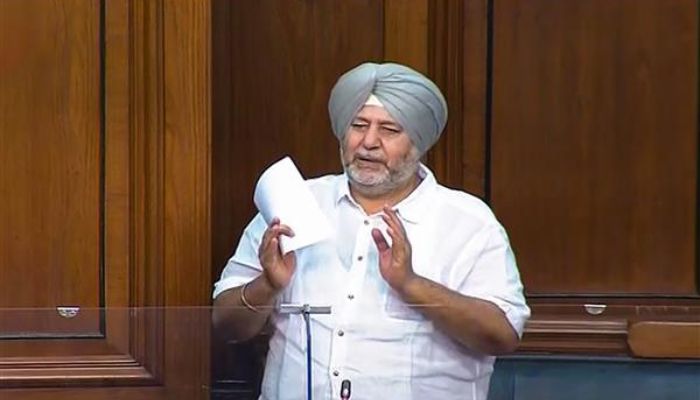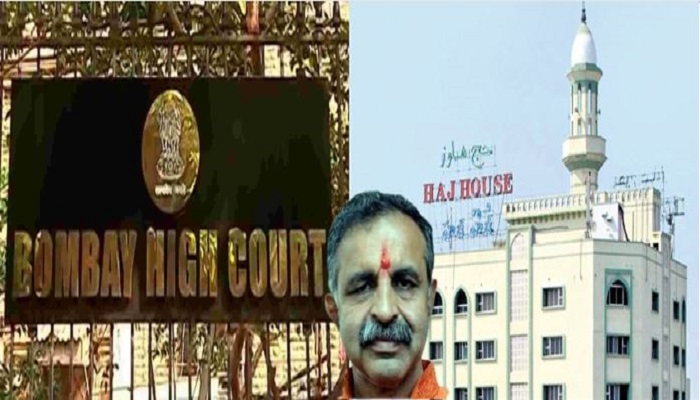Congress MP’s private bill seeks restrictions on wedding expenses

[ad_1]
On Friday, 4th August 2023, the Lok Sabha took up for discussion the Prevention of Wasteful Expenditure on Special Occasions Bill 2020. Congress MP Jasbir Singh Gill introduced the private member’s bill in January 2020. The new bill aims to impose limits on the number of guests to be invited and dishes to be served at weddings, in addition to capping the amount spent on gifts to newlyweds.
The primary objective behind this legislation is to curb “wasteful expenditure” associated with such occasions.
Furthermore, the proposed bill suggests redirecting the focus from extravagant gifts towards making donations to support the underprivileged, such as the poor, needy, orphans, weaker sections of society, or non-governmental organizations engaged in charitable activities.
Jasbir Singh Gill, the Member of Parliament representing Khadoor Sahib in Punjab, stated that the Bill aims to put an end to the culture of extravagant weddings, which often places a significant financial burden, particularly on the bride’s family.
While explaining the motive behind this bill, he said, “I came across stories of how people had to sell their plots, properties and opt for bank loans to solemnize marriages in a lavish manner. The cut in wasteful expenditure on marriages could go a long way in checking female foeticide, as a girl child then would not be seen as a burden.”
Gill revealed that the idea for the Bill came to him when he attended a wedding in Phagwara back in 2019. At the event, he witnessed an excessive display of 285 trays with dishes, out of which around 129 trays remained untouched and went to waste, with not even a spoonful of food taken from them. This observation prompted him to draft the Bill.
The proposed Bill sets limits on wedding guests from both the bride and groom’s families, capping the number at 100. It also restricts the number of dishes served to 10 and imposes a maximum value of Rs 2,500 for gifts. Additionally, the Bill advocates for directing contributions toward those in need, such as the poor, needy, orphans, and weaker sections of society, or donating to non-governmental organizations (NGOs) instead of extravagant gifts.
Gill added, “I implemented this in my family first. There were 30 to 40 guests when I married off my son and daughter this year.”
The statement of objects and reasons of the Prevention of Wasteful Expenditure on Special Occasions Bill 2020 introduced by Gill reads, “These days, it has become fashionable to spend like feudal on special occasions such as marriages and festivals. The guest list is very long and the food menu layout is vast which leads to a lot of wastage. Not only this, a lot of wastage occurs at the time of distribution of marriage cards or post-wedding gifts. Similarly, a lot of wastage occurs on festivals due to practices of exchanging gifts. That also deserves significant attention.”
It further says, “On weddings, the practice of a vast food layout, decoration, bands, music and the number of guests invited has become a status symbol and a symbol of a show-off. Analogously, on festivals, the thoughtless exchange of gifts is very wasteful. Festivals must be a time to remember the almighty and do good to society. But often, the core concept of festivals gets lost in the show-off that many do, by exchanging fancy gifts. That money could instead be donated and smaller gifts distributed.”
Giving a view of food wastage, it says, “In fact, on special occasions, food waste and loss has been rapidly increasing in India. According to the United Nations Food and Agriculture Organisation (FAO), every year around 1.7 billion tonnes, or almost one-third of food produced for human consumption, is lost or wasted globally.” Referring to Global Hunger Index 2019, the bill states that India is ranked 102 of 117 countries.
It adds, “The NFHS4 (2015 &16) estimated 46.8 million under-five children in India are stunted and this represents one-third of total stunted children across the globe. Food loss or waste also amounts to a major squandering of resources, including water, land, energy, labour and capital and it also needlessly produces greenhouse gas emissions, contributing to global warming and climate change. It is high time for our country to stand up against this unmeaningful and wasteful expenditure. So we should decide that not more than one hundred guests and not more than ten dishes should be allowed. Hence this Bill.”
The attempt to regulate and limit the extravagant expenses incurred on “big fat Indian weddings” is not new. In December 2017, BJP’s Gopal Chinayya Shetty, the Lok Sabha MP from Mumbai North, introduced a private member bill with the same intention. The bill aimed to prevent and prohibit excessive expenditure on weddings and related ceremonies across the country.
Prior to that, in February 2017, Congress MP Ranjeet Ranjan introduced The Marriages (Compulsory Registration and Prevention of Wasteful Expenditure) Bill, 2016. This bill also sought to restrict the number of wedding guests and dishes served and proposed that those spending above Rs 5 lakh on a wedding contribute 10% of the amount to support marriages of girls from poor families.
However, the chances of these private member bills being passed in Parliament are typically low. According to data from PRS Legislative Research, a think tank, only 14 such bills have been passed by both Houses of Parliament since 1952.
[ad_2]
Source link



